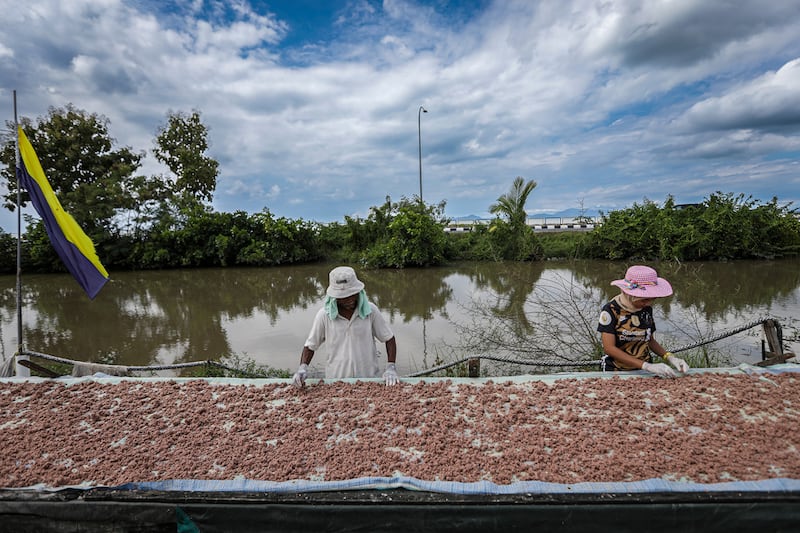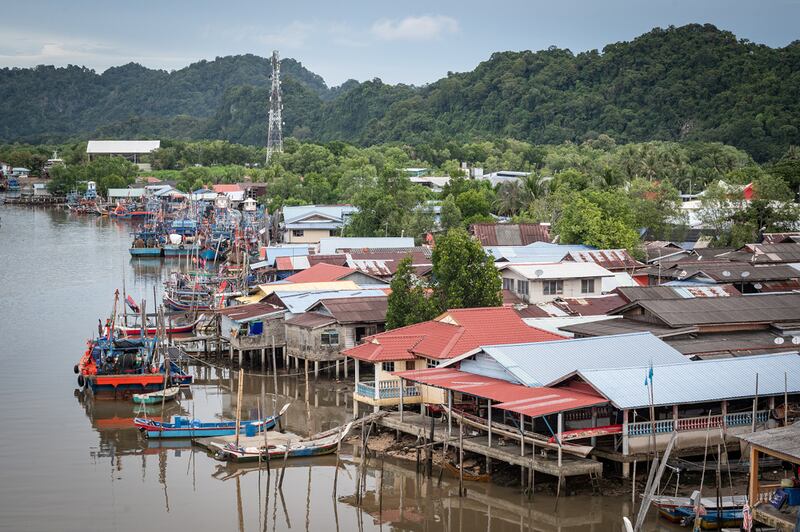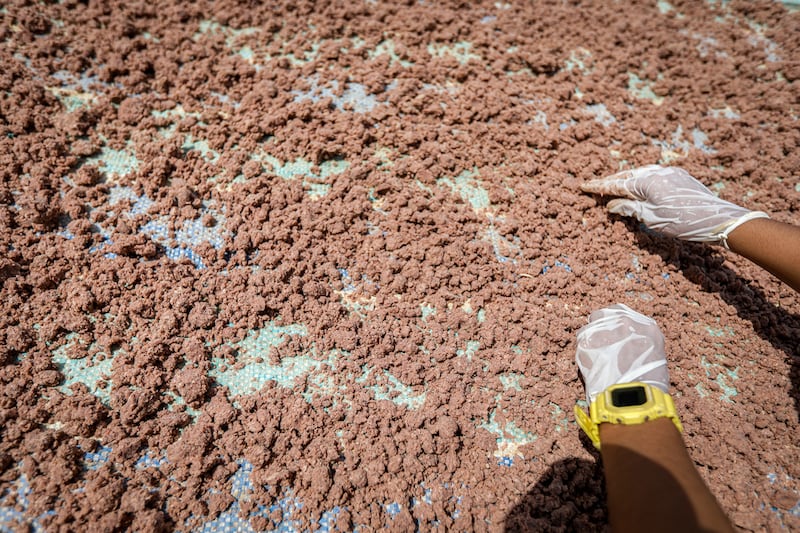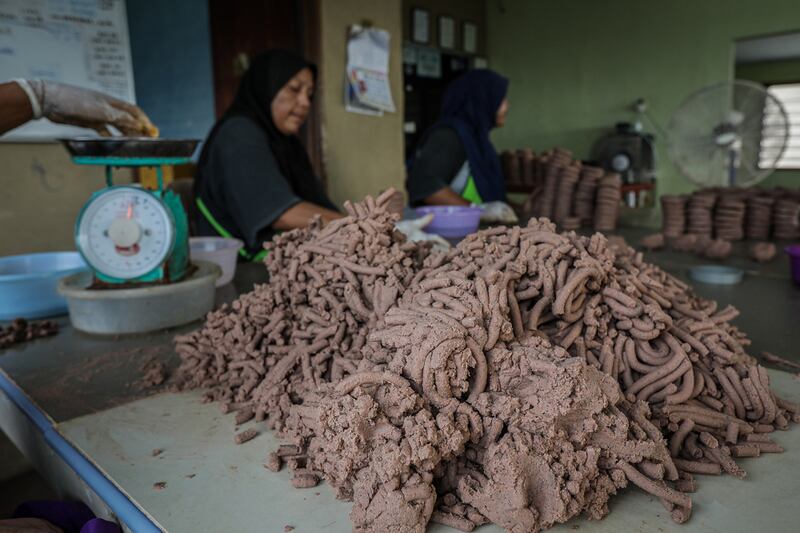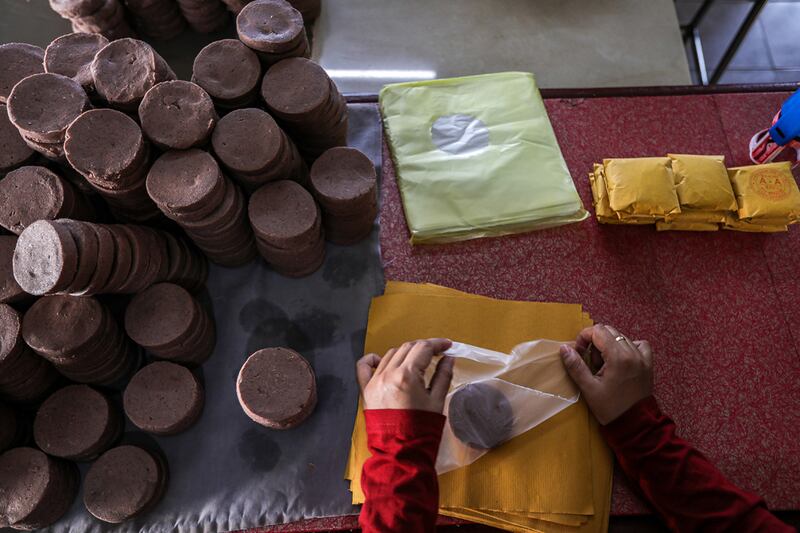Belacan, a shrimp paste with a strong odor, has been a staple ingredient in Malaysian cuisine for generations.
From coastal areas in Peninsular Malaysia to the Borneo states of Sarawak and Sabah, this traditional product is used in local kitchens to enhance flavor in dishes. It is beloved for its umami and salty taste.
The typically pink paste is made from a mixture of geragau shrimp and salt, which are fermented to complete the preservation process. Belacan is commonly used in condiments such as sambals and dishes such as kuah rojak, northern laksa and asam pedas. Its flavor is further enriched when grilling.
But production could be slowed in the future.
Climate change and the transition to the Northeast monsoon, which lasts from November to March, have led to unpredictable weather and prolonged rainfall, significantly affecting belacan production, particularly for traditional producers.
The drying process is still carried out manually and relies on sunlight to dry the shrimp paste.
In Perlis state, third-generation belacan producer Aziz Salleh, who runs Perniagaan AA Bayu, said income had been reduced because of prolonged rains during the year-end monsoon season.
“The fermented geragau shrimp is blended and then sun-dried. Once dry, it’s blended again before being weighed and compressed into molds.
Apart from the domestic market, there is a demand for the paste in Indonesia, Saudi Arabia, Australia, China and Hong Kong.
Belacan, shaped into patty-like forms, typically sells for one ringgit (U.S. 22 cents) to three ringgit (67 cents) for 200 grams, said Norathirah Marzuki, who also works at the family-owned business.
“Now, with frequent rain, we can’t sun-dry the shrimp, so we can’t make belacan today. Production and income have dropped by nearly 20%,” Norathirah told BenarNews.
Production usually improves once the monsoon season ends.
